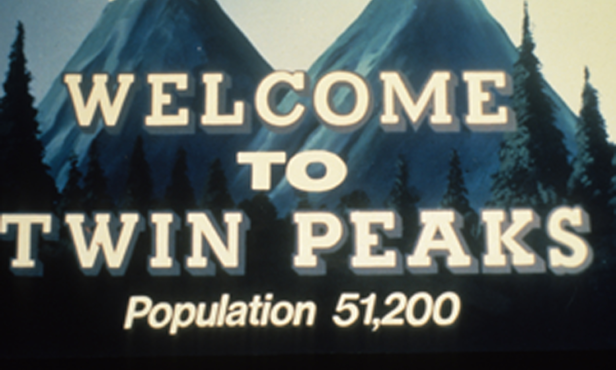Twin Peaks went from being the biggest show on TV to cancelled obscurity within just over a year. Buoyed by a huge central mystery that essentially carried the momentum of the entire story – the nasty death of high school prom queen Laura Palmer and the way it affected the entire cast of characters within the town of Twin Peaks – it was a compelling, wonderful and unique show defined by the hallmarks of film director David Lynch. Yet, it was subject to almost all of the negative elements that lead to our favourite TV shows being cancelled today.
This illustrious serial drama was hit by network pressure that forced the resolution of the investigation into the murder of Laura Palmer (Sheryl Lee). This then pushed the Pacific Northwest-shot show into a creative corner it almost didn’t pull out of, and ratings crashed following this resolution, which led to it being put on hiatus by its network, ABC.
On top of all that, its creator, David Lynch, left the show at one point to work on the film Wild at Heart, thus leaving the show rudderless and directionless. It was a lot of bad luck that a show of Twin Peaks’ quite extraordinary depth and complexity didn’t really deserve. Had it never existed, there would be no Lost, The Sopranos, The Wire or The Walking Dead – it simply allowed long-form storytelling to exist on credible network television beyond the realms of the daily soap opera, which Twin Peaks parodied.
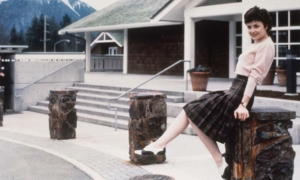
In retrospect, its reputation has sharply ascended, and one factor attributed to this success is the combination of two very different behind-the scenes talents: Lynch himself, an Academy Award-nominated director who masterfully explores the underlying darkness within man, and Mark Frost, an accomplished TV screenwriter who cut his teeth by scripting 29 episodes of the esteemed cop drama Hill Street Blues.
Frost agrees that the mixture of skills in this collaboration was key to the creation of something so iconic. “Yeah, and the other element that people don’t consider is the strength of our friendship,” he explains. “[David and I] get along so well and our sensibilities just match up really beautifully when we’re working together or even hanging out, so what you’re seeing is the product of two minds that are very much in sync, but also two people who share a lot of the same enthusiasm and sense of humour, and we have an awfully good time when we work together. That, I think, came across in the show as well. We’ve known each other now for 26 years, so we go back quite a way.”
When reflecting on the impact Twin Peaks had on the landscape of television, Frost explains his initial awareness that he and Lynch were working on a different sort of project. “It’s funny. At the time we were making the show I said to David: ‘This is really a subversive television show for a major network! I don’t think I’ve ever seen anything like this before.’ I was secretly gleeful that we were able to sneak it through, because I found so much of network television at the time so bland and formulaic, and the fact that the show has had such a long life and it’s been rediscovered, really, by a whole new generation of people and so many people who went on to create shows.”
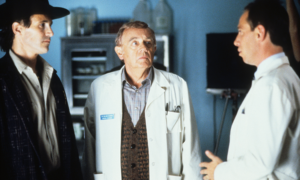
Beyond the aforementioned dramas, popular comedy Psych staged a terrifically geeky tribute to the show just two years ago in an episode titled ‘Dual Spires’ – a must-see for any Twin Peaks devotees that reunited many members of the original cast. Even The Simpsons had two great jokes about Twin Peaks years after it went off the air. Frost perceives that the show’s impact has grown with time, and that it affected not just the content and structure of television drama, but the way it was approached philosophically. “What happened when we went off the air was television kind of exploded; we had the advent of all the cable networks like HBO and Showtime and half a dozen others that have since followed, all of which are doing much more adventurous programming, and many of the people I know who created those shows have cited Twin Peaks as a point of inspiration for them. I think that’s been really gratifying to know that we kicked the doors down and then a lot of other people were able to rush into the room.”
But being revolutionary meant that Twin Peaks was treated as an unknown quantity by an impatient audience – and the sticky business of the show’s forced resolution is something Frost has dwelled on in the meantime. “We’ve debated about that a lot,” he admits. “We were getting heavy, heavy pressure from the network to solve the murder; in fact, they wanted it solved at the end of the first season, and David’s instinct – and mine to the same extent – was ‘No, we don’t have to do that; we should keep this going because that’s sort of the MacGuffin that brought us into this world and doesn’t necessarily need to be solved’. So we struck a compromise and solved it halfway through that second season, and then we had to adjust on the fly and try to find a reason to keep the show going. That’s the problem with shows like this, where you get a pick-up and it’s so difficult to produce a full season of, say, 22 hours of TV. You’re kind of looking at the bus that’s just about to run you over because of deadlines, as opposed to looking way down the road to where you want the show to be in, say, nine months, so we didn’t have the time that I felt we needed to fully prepare for the impact of ending the Laura story.”
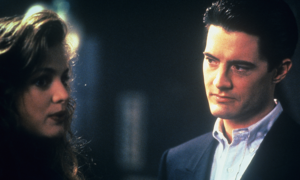
Indeed, while the mid-Season 2 reveal of the identity of Laura’s killer, as well as the exploration of supernatural elements within the woods of Twin Peaks rank as all-time great TV episodes, it’s what came next that tore the storytelling apart. Without a major thrust to the drama, the core principles of the show disintegrated, leading to intolerable plotlines that saw one character, middle-aged Nadine Hurley (Wendy Robie), lose her mind and believe she was a high school cheerleader, while the sidekick of coffee-loving protagonist Special Agent Dale Cooper (Kyle MacLachlan), Sheriff Harry Truman (Michael Ontkean), becomes a temporary alcoholic in an unintentionally laughable fashion. Basically, Twin Peaks became burdened by the kind of implausible soapy storylines that it had previously subverted (though one entertaining exception arguably came in David Duchovny’s brilliant portrayal of Cooper’s cross-dressing friend, Agent Dennis ‘Denise’ Bryson).
“We hit a little valley there in the storytelling process, which was kind of inevitable,” Frost says. “The Laura Palmer story was so huge and formative in terms of how the show had proceeded and what people expected of it, so I think there was an inevilable leldown after the murder was solved, und We were probably a little slower than we should have been in picking up the tempo again. I think towards the end of the second season we hit our stride again, and the second major through line with Cooper and his nemesis Windom Earle really did, I think, get to an interesting place, but I’m the first to say yeah, there was a period where we did lose a little bit of our momentum.”
The show did eventually find its footing in the final six episodes of Season 2, which would become the closing arc of the entire show. Lynch returned to the production, prompted weaker storylines that had played out for too long, including the increasingly irritating romance between Sheriff’s deputy Andy (Harry Goaz) and receptionist Lucy (Kimmy Robertson) to be pushed to one side. The introduction of the Jack Nicholson Joker-esque Windom Earle (Kenneth Welsh) as Cooper’s opposite and Annie Blackburn (Heather Graham) as his love interest changed the paradigm once more, as the supernatural elements of the ‘Black Lodge’ parallel dimension (the familiar Twin Peaks image of a room with red drapes and a black-and-white zig-zag floor) came to the fore again. It was mystery-based storytelling at its best, gradually bringing the always implied two worlds of our reality and the terrifyingly surreal Lodge together.
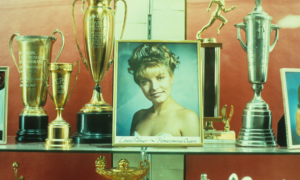
Suddenly, Twin Peaks mattered again, but it was too late; the audiences of the early Nineties had lost interest. It was their loss: the final episode, given the evocative title of ‘Beyond Life and Death, was the first to be directed by Lynch since the identity of Laura Palmer’s killer was revealed in the episode ‘Lonely Souls’. With an extended, unscripted sequence that saw Cooper consumed by the Black Lodge while faced by the demonic entity BOB (Frank Silva), this frightening and jaw-dropping hour of television may well be Lynch’s finest work. After that, the show was canned, leaving us with an aching slew of unresolved cliffhangers.
Twin Peaks would gain a life beyond TV, however, as Lynch directed the 1992 prequel/sequel hybrid Twin Peaks: Fire Walk With Me. Though it was panned at the time and bombed financially, the depiction of Laura Palmer’s final days of life and descent into darkness – co-starring David Bowie, no less – has gained gradual acclaim over time. “I thought it was a brilliant way to both go forwards and backwards in time and extend the timeline of the mythology, and that’s a film that I think has also grown in reputation over the years.”
The impact of the show is so expansive and pronounced that it will continue to be remembered as a milestone within its medium-not just for the idea of building a long-running show around one sole, narrative-defining mystery, but also the way it brought filmmaking values to the nascent paradigm of high-end TV drama.
We ask Frost which element of the show he’s proudest of, looking back. “I think the fact that we made the show as a kind of solid-state engineering. We had feature people working in all the departments, we took a lot of pride in making the show look like a movie and not a television show, we took great care in casting the show and making sure that we had the very best actors available playing those roles, and we were able to make the show we wanted to make.
“[There was a unique degree of freedom from the network in making those sorts of decisions and, to their credit, they did not try to meddle creatively with what we were doing. That’s a very rare experience in television, and you’d be hard-pressed to find anything like that today in network television,” Frost says. “We were lucky in that regard, and the fact that the show is still regarded in the way it is when most network television ends up being fairly disposable or a product of its time, I think is a testament to how hard we worked at maintaining that quality.”
Mark Frost is the author of The Paladin Prophecy, available in paperback from Random House.
